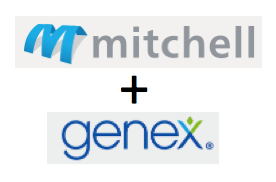Consolidation in work comp services continues with the imminent announcement Genex and Mitchell will merge in the very near future.

Stone Point Capital owns both companies, so it is no surprise that the two are becoming one. Mitchell was acquired a short five months ago, Genex a couple months earlier.
While initial reports were the two would remain separate, that didn’t make much sense. By combining the two, expenses will be reduced by (I’m speculating here, but it’s educated speculation) eliminating duplicate headquarters functions and reducing total sales and marketing headcount.
It’s worth repeating what I wrote back in April when Stone Point bought Mitchell:
According to internal sources, Genex and Mitchell will NOT be combined or integrated or even work together. They were pretty adamant about that.
Allow me just a bit of skepticism; private equity (PE) firms don’t often buy companies with similar capabilities and services and leave them alone. That’s inefficient: they own two separate entities – overhead, management, systems, staff, – that do the same things. Especially when those two businesses are aligned as closely in many areas as these two are.
While Mitchell also operates the nation’s third-largest work comp pharmacy benefit manager, and provides a wealth of services to the auto claims industry, Genex’ offerings sort of “fit in” to Mitchell’s portfolio. Genex’ utilization management, peer review, case management, and related offerings are very similar to Mitchell’s. And, Mitchell provides Genex’ bill review application.
Sources indicate there’s a lot of leverage (debt) on the Genex deal – as there is in pretty much every acquisition – so cost-saving moves and elimination of redundant functions is likely a priority.
It is certainly possibly the two companies will operate completely independently – but I’d be surprised if that lasts very long.
Stone Point is one of the two major stakeholders in work comp services, with Carlyle the other. Stone Point’s assets include:
- AmTrust
- Genex
- Mitchell International
- Oasis (not a work comp-only entity, rather a PEO with significant work comp business)
What does this mean for you?
Smart money is looking to reduce overhead expense and duplication – the right focus in a very mature market. Other entities would do well to think carefully about whether that makes sense for them as well.



I suspect that there is likely some important clarification to follow this report; namely that Mitchell’s Auto Physical Damage business will continue to operate separately from the Medical/Casualty business as it does today.
Any advice for the “salesforce”? As you may recall the salesforce in the workers comp managed care arena is burden by mandatory NON-DISCLOSURE/NON-COMPETE agreements which effectively bar highly qualified professionals from pursuing unfettered job opportunities. Although highly profitable our market is commonly recognized as a “niche market” subject to routine mergers and acquisitions creating a great deal of job displacement. To what end is our industry aided by eliminating or limiting its most qualified sales professionals? I add in closing that NON-COMPETE agreements aren’t utilized to this extent for comparative healthcare sales professionals including pharmaceutical sales representatives, device sales representatives, dental and optical sales representative, etc… Basically you can sale cars at the BMW dealership September and walk next door in October and sale cars at the Mercedes dealership without suffering punitive legal risk. Why are the sales professionals for DME and/or PBM services in the workers compensation managed care arena required to surrender their rights to practice their professions freely?.
Hello Derrick – if/when there is any employment disruption, my guess is these two companies will be more accommodating than some other firms have been in the past.
Peter Madeja is one of the finest people I know, and he is committed to doing the right thing. Alex Sun is also a fair and reasonable executive. Net is these aren’t the same kind of executives that have enforced non-competes in the past in this type of situation.
Of course, I cannot – and am not – speaking for either of these gentlemen.
Thanks for the post, and opportunity to clarify Stephen. Alex said it well: ““Mitchell remains intensely committed to its clients and existing lines of business across auto physical damage, auto casualty, workers comp, pharmacy, and disability. While we further expand our casualty strength in the market, we continue to invest significantly in the APD Division – be it Cloud, Automation, and Proper and Safe Repair.”.
As the leader of the APD Division, I can clearly state we will continue to operate separately @ Mitchell, as we do today, and we continue to be excited and committed to play a vital role in the future of Auto Physical Damage.
Thanks again! Debbie Day, EVP and GM, APD at Mitchell